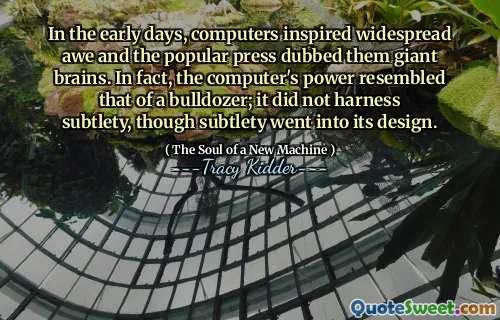
In a book called Computer Power and Human Reason, a professor of computer science at MIT named Joseph Weizenbaum writes of a malady he calls the compulsion to program. He describes the afflicted as bright young men of disheveled appearance, often with sunken, glowing eyes, who play out megalomaniacal fantasies of omnipotence at computer consoles; they sit at their machines, he writes, their arms tensed and waiting to fire their fingers, already poised to strike, at the buttons and keys on which their attention seems to be as riveted as a gambler's on the rolling dice.
In "Computer Power and Human Reason," Joseph Weizenbaum, a professor at MIT, describes an obsession he terms the "compulsion to program." He portrays individuals afflicted by this condition as brilliant yet disheveled young men, often with sunken, illuminated eyes. These individuals are consumed by grandiose fantasies of power and control while seated at their computers, intensely focused on the task at hand.
Weizenbaum emphasizes the near-addictive behavior of these programmers, who exhibit a tense physical stance, eagerly ready to engage with the keys and buttons. Their fixation on the screen resembles that of a gambler fixated on the outcome of rolling dice, highlighting a deep, almost compulsive engagement with technology and programming.











